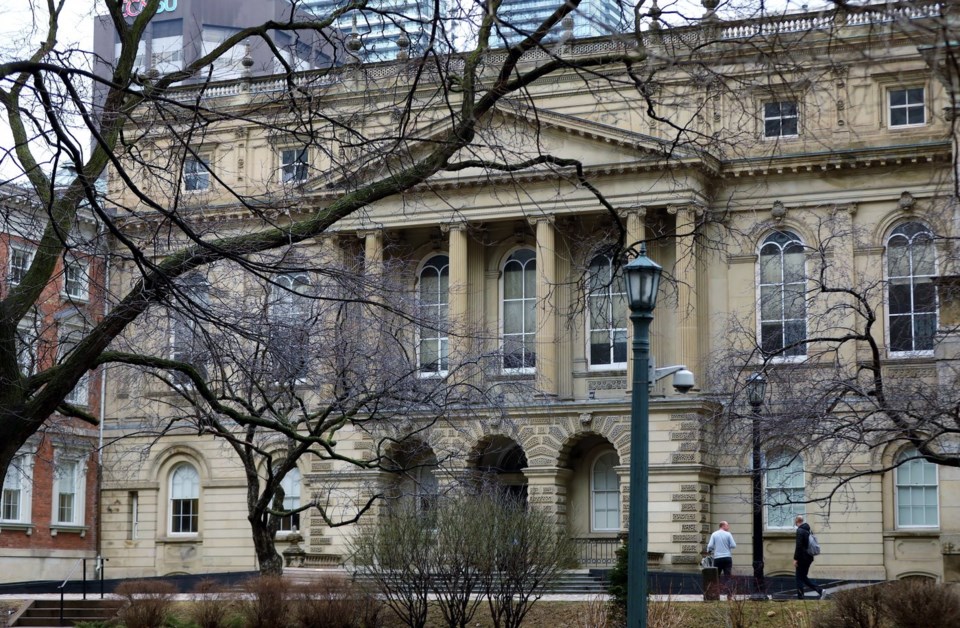TORONTO — Ontario's top court has ordered a new hearing for a youth-led constitutional challenge of the provincial government's emissions target.
The Ontario Court of Appeal's ruling sends the case back to the lower court for a new hearing. It found the lower court judge's analysis was flawed on some key points and the case raised important issues that should be considered afresh.
Ecojustice, an environmental law charity that backed the young people who brought the challenge, called it a landmark victory.
"The seven youth are optimistic and will push forward with the new hearing, with all the urgency the climate crisis demands," the charity said in a written statement.
The case is the first in Canada to consider whether governments' approach to climate change has the potential to violate the Charter of Rights and Freedoms.
The Appeal Court decision lays a "solid foundation" for the young people to win in a new hearing before the lower court, said Stepan Wood, a professor at the University of British Columbia.
"This unanimous decision is a major victory for Canadian children and youth who are seeking to hold governments accountable for their contributions to climate change," Wood, a Canada Research Chair in law, society and sustainability, said in a written reaction to the decision.
"It establishes that, where a government makes a statutory commitment to combat climate change (as the federal government and all provincial and territorial governments have done), it must implement that commitment in a way that complies with the Charter of Rights."
At stake was an emissions target that dates back to when Premier Doug Ford's then-newly elected Progressive Conservative government repealed the law underpinning Ontario's cap-and-trade system for lowering emissions.
The government scrapped the system and replaced the emissions target in that law — 37 per cent below 1990 levels by 2030 — with a new target of 30 per cent below 2005 levels.
The young people argued the weakened target committed Ontario to dangerously high levels of greenhouse gases, knowing it would cause harm to the province's youth and future generations, in violation of the Charter.
They brought evidence to suggest the revised target would allow for 30 megatonnes more in annual emissions by 2030, equivalent to the annual emissions of about seven million passenger vehicles, or nearly 200 megatonnes from 2018 to 2030.
The Ontario Superior Court, however, decided that the case was ultimately about the government's alleged inaction. It's not that the province's target increased emissions, as the young people argued, but that it allegedly did not go far enough to reduce them.
In its decision, the court said the applicants were trying to impose a "freestanding" obligation on the province to fight climate change.
The Appeal Court disagreed. Ontario voluntarily made a statutory commitment to combat climate change, its ruling said.
"The question is whether the application judge should have considered whether Ontario's alleged failure to comply with its statutory obligation violated the appellants' Charter rights," the decision read.
The case is part of a wave of cases in Canada and abroad asking courts to take a more active role in overseeing governments' climate plans.
The top court in the Netherlands ruled in 2019 that the government had a duty to protect citizens from the potentially devastating effects of climate change, and upheld lower court decisions ordering the government to further cut its emissions.
Thursday's decision was also being closely watched by lawyers in another youth-led Charter challenge of the federal government's overall climate plan, currently before the Federal Court.
"It's going to be a very important decision," said Catherine Boies Parker, a lawyer for the applicants in the federal case, in anticipation of the ruling.
This report by The Canadian Press was first published Oct. 17, 2024.
Jordan Omstead, The Canadian Press
